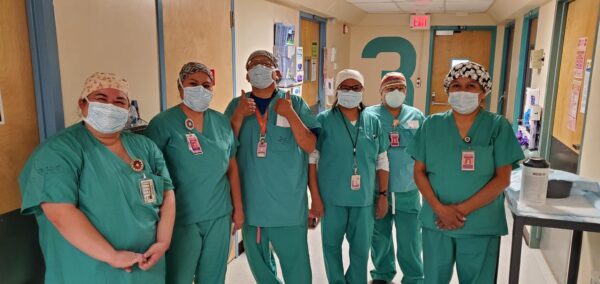
- Details
- By Native News Online Staff
WINDOW ROCK, Ariz. — On Saturday, the Navajo Department of Health, in coordination with the Navajo Epidemiology Center and the Navajo Area Indian Health Service, reported 258 new COVID-19 positive cases for the Navajo Nation and no recent deaths. The total number of deaths remains 648 as previously reported on Friday. Reports indicate that 8,609 individuals have recovered from COVID-19, and 155,113 COVID-19 tests have been administered. The total number of positive COVID-19 cases is now 16,223, including 11 delayed unreported cases.
Navajo Nation COVID-19 positive cases by Service Unit:
- Chinle Service Unit: 3,347
- Crownpoint Service Unit: 1,788
- Ft. Defiance Service Unit: 1,688
- Gallup Service Unit: 2,647
- Kayenta Service Unit: 1,700
- Shiprock Service Unit: 2,486
- Tuba City Service Unit: 1,660
- Winslow Service Unit: 892
* 15 residences with COVID-19 positive cases are not specific enough to place them accurately in a Service Unit.
On Saturday, the state of New Mexico reported 2,142 new cases of COVID-19, the state of Arizona reported 4,136 new cases, and Utah reported 2,043.
“The spread of COVID-19 completely depends on the movement of people. We have the ability to dramatically reduce the spread of this virus by staying home, but not enough people are making the right decisions. We have too many people that are continuing to travel, to go to stores for frivolous items, and holding family gatherings. We have to do better in order to prevent a major health care crisis and to avoid overwhelming our hospitals. I’m certain that no one wants to lose a loved one to this virus, so please be strong and make good decisions for your family. Stay home, wear a mask, practice social distancing, avoid crowds, and wash your hands often,” Navajo Nation President Jonathan Nez said.
The Navajo Nation’s three-week stay-at-home lockdown is in effect 24-hours a day, seven days a week with the exception of essential workers, cases of emergencies, and to purchase essential items such as food and medication when essential businesses are open from 7:00 a.m. to 3:00 p.m. daily. Navajo Area IHS and 638 hospitals continue to offer COVID-19 drive-thru testing sites.
For more information, including helpful prevention tips, and resources to help stop the spread of COVID-19, visit the Navajo Department of Health's COVID-19 website: https://www.google.com/url?q=http://www.ndoh.navajo-nsn.gov/COVID-19&source=gmail&ust=1606753149232000&usg=AFQjCNEUhX0xR8e1mXSgssIT4kPush3gRA">http://www.ndoh.navajo-nsn.gov/COVID-19. For COVID-19 related questions and information, call (928) 871-7014.
More Stories Like This
Native News Weekly (August 25, 2024): D.C. BriefsUS Presidents in Their Own Words Concerning American Indians
Haaland Meets with Southern New Mexico Law Enforcement on Public Safety Priorities
This Day in History – Dec. 26, 1862: 38 Dakota Men Executed by Order of Abraham Lincoln
Merry Christmas 2025
Help us defend tribal sovereignty.
At Native News Online, our mission is rooted in telling the stories that strengthen sovereignty and uplift Indigenous voices — not just at year’s end, but every single day.
Because of your generosity last year, we were able to keep our reporters on the ground in tribal communities, at national gatherings and in the halls of Congress — covering the issues that matter most to Indian Country: sovereignty, culture, education, health and economic opportunity.
That support sustained us through a tough year in 2025. Now, as we look to the year ahead, we need your help right now to ensure warrior journalism remains strong — reporting that defends tribal sovereignty, amplifies Native truth, and holds power accountable.
 The stakes couldn't be higher. Your support keeps Native voices heard, Native stories told and Native sovereignty defended.
The stakes couldn't be higher. Your support keeps Native voices heard, Native stories told and Native sovereignty defended.
Stand with Warrior Journalism today.
Levi Rickert (Potawatomi), Editor & Publisher

